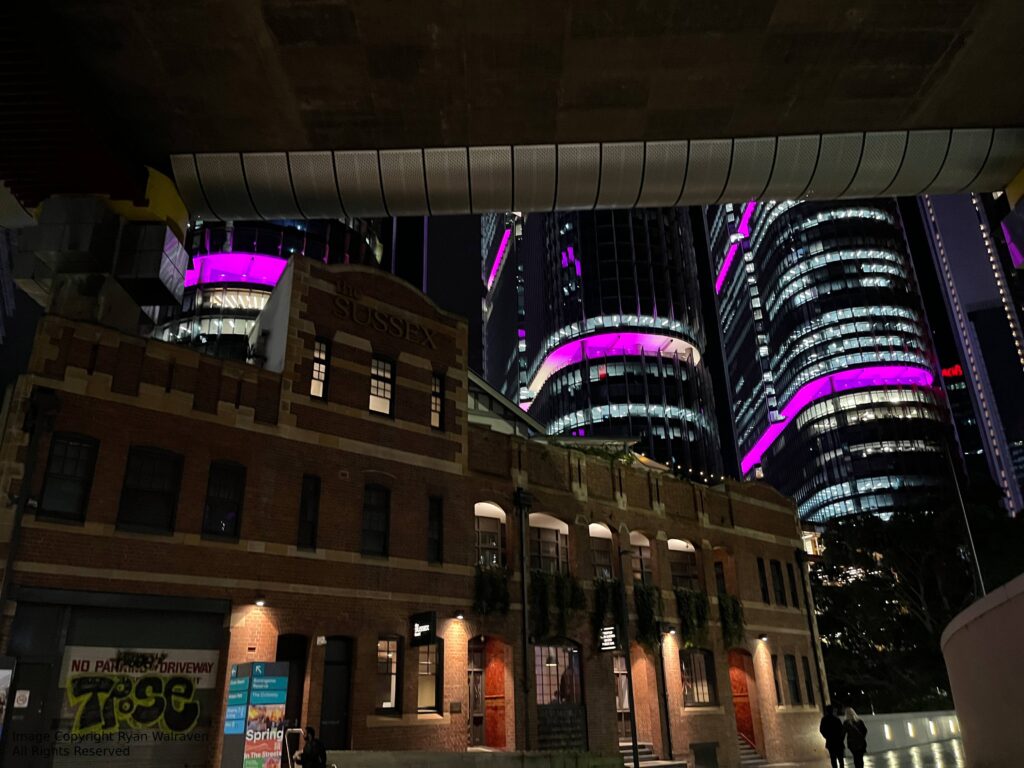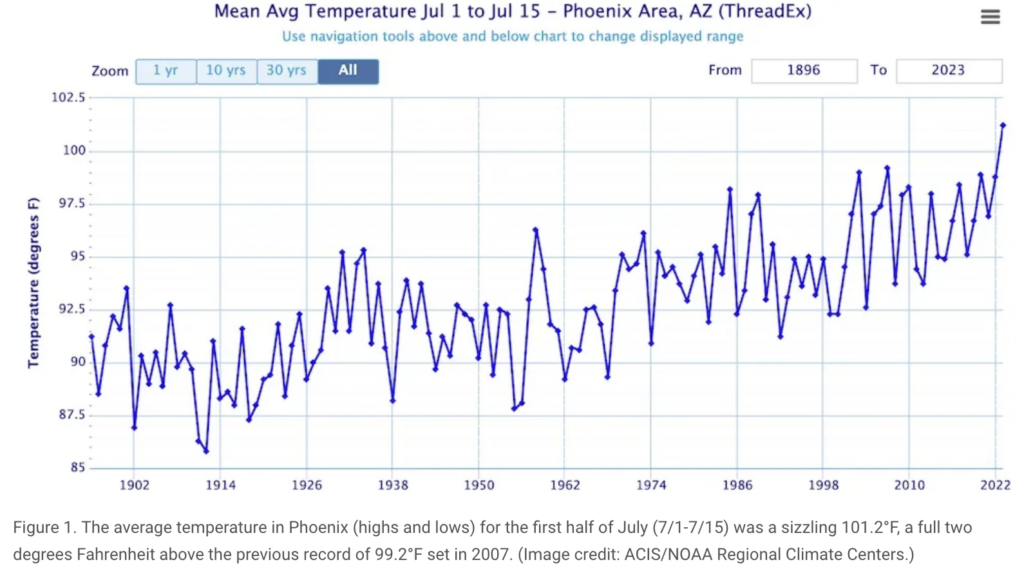Climate change is a reality that seems to be impacting things more and more every dayOf course, some folks still have doubts. Changing the way we generate energy, create food, and run the economy is a huge deal. If you feel uncertain or want to be convinced, there are lots of great resources out there, including Yale Climate Connections. After all, questioning things is natural and necessary – it’s part of the scientific process and science sometimes gets things wrong. Plus, the climate of an entire planet is a complicated thing. I mean, maybe it’s easier on Mars where the weather is either “clear” or “dust storms,” but on Earth we’ve got a denser atmosphere and huge oceans.

Even setting aside climate change, I think we can all acknowledge that the Earth is changing. There are more people living on our beautiful blue planet every year, with current estimates at about 8 billion. And of course all those people need food, water, air, and shelter, along with other tools and resources, like some way to participate in the global economy. Inevitably we all contribute to the changes to the planet. We all love new technology, including things like cell phones and streaming services like Netflix. We also love central air and heating, bigger spaces to live, and comfy clothes and furniture. Just looking back to the 80’s, I was born into a place where we had no central AC, no cell phones, and no computers in most peoples’ homes. Yet in the blink of an eye, I live in a world where I’m writing this on a glowing rectangle, listening to music streamed through thin air from computer servers in California, driving tea flown halfway around the globe, and reaching out to friends and family.
Things changed fast.
So let’s say you’re convinced climate change is happening, at least some way or another. Suppose you don’t think humans caused it. Even then, we should try to do something right? Sea levels have already risen about 7 inches in the past century, and they’re slated to rise higher. States like Florida, Louisiana, and Hawaii are already seeing changes to their coastlines, with beaches disappearing and coral reefs dying off. In the past month, smoke blanketed Chicago, along with much of Canada and the US, causing awful air quality and making the entire city smell like a campfire. Not the worst smell, honestly, but not great for my 5k training either. Temps are also rising, and yeah, we have AC, solar panels, and homes to hang out in, but I love the outdoors, and of course fresh water and air are essential for our survival. As you can see below, the trend is upward, and this year we’re seeing extreme temperature in some places like we’ve never seen before. So what can we do?
Solar and other renewables are great, but require limited resources to construct. I don’t mean to dismiss them, as I’ve seen solar deployed successfully in Hawaii, but there are also limits to how we can use them. Solar, for example, needs lots of sunny days, and wind needs wind, obviously.
Along with those – Nuclear power is one answer with tremendous potential. Of course, there can be downsides there too because we need to store the waste somewhere and work hard not to have accidents. But there are alternative. One of the best options is thorium power, with reactors currently only being developed in China, which has massive thorium reserves. The US has recently made major headway into fusion power, a type of nuclear power that works like the sun by “burning” hydrogen nuclei into helium and turning a little bit of mass into energy along the way. This tech is still in the infant stages, with a power plant not planned until at least 2035. We need to start adapting now, however.
Planting more trees, restoring forests, and preventing further forest fires is a great first step. Trees suck up carbon dioxide and clean the air. Plus, they provide beautiful outdoors spaces for humans and animals to enjoy.
So-called carbon capture technology may also help, where we capture carbon dioxide from power plants, cars, and other process and store it deep underground. But this is essentially just reversing the process of burning oil, and is extremely inefficient. Plus, it’s not enough just to capture CO2 that’s newly released from cars and factories – we has to suck up the old stuff too, because it has nowhere to go. Some billionaires has discussed releasing reflective bits of metal into the atmosphere or space near the planet to block sunlight, which would certainly work, but mean darker days and unintended consequences for plants, animals, and humans.
Another question is – why are we still on this path? Because it’s hard to stop using oil? Surely we can do it. Humanity has adjusted from using slaves, animal assistance, wood burning stoves, and coal in the past.
In the long run, nuclear and carbon capture technologies seem to me like the most obvious options. Cities across the globe can be powered by fusion and thorium reserves, as we have plenty of both resources. And nearby we’ll have massive carbon capture tower and filters, power by the nuclear plants, to drain carbon from the atmosphere and return it to the ground where it belongs. Maybe this seems naive or too utopian. But humans have overcome worldwide problems in the past, and I’m hoping we can again.





